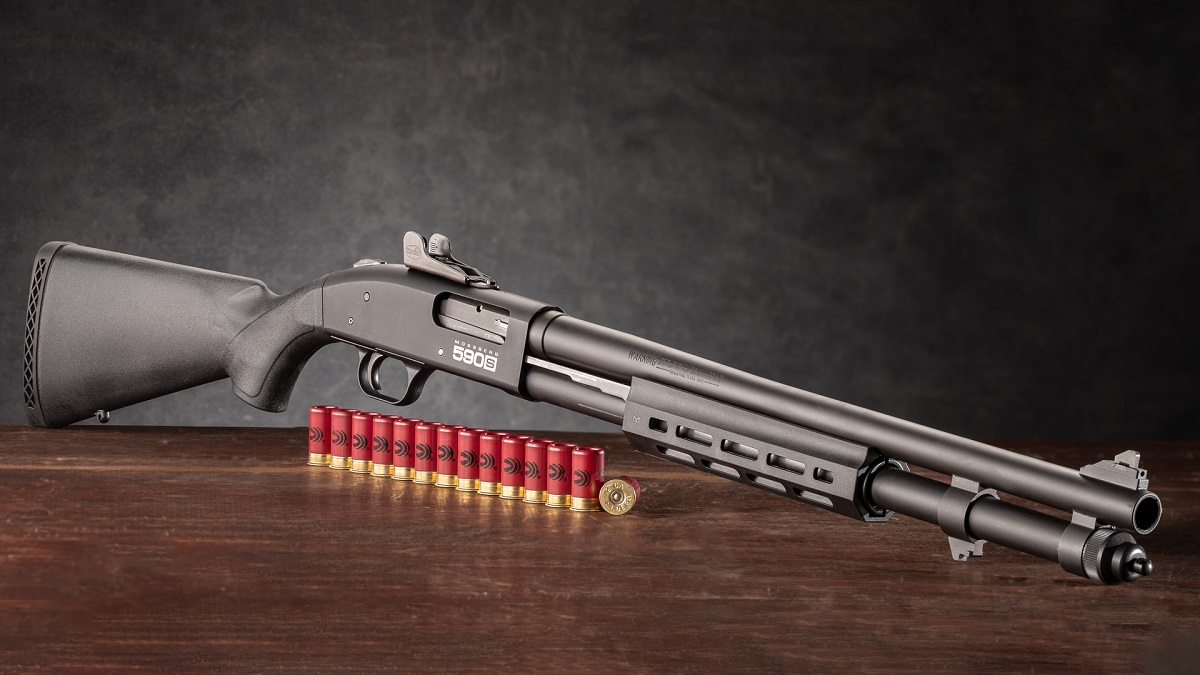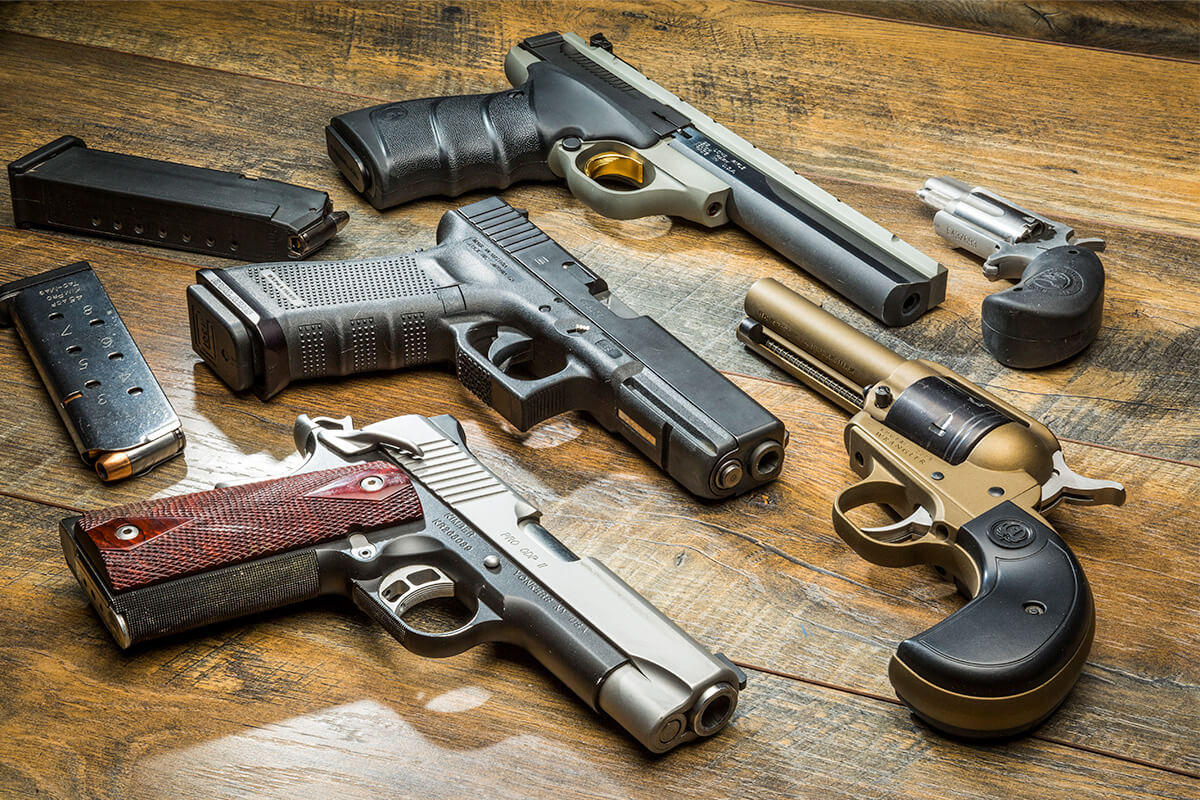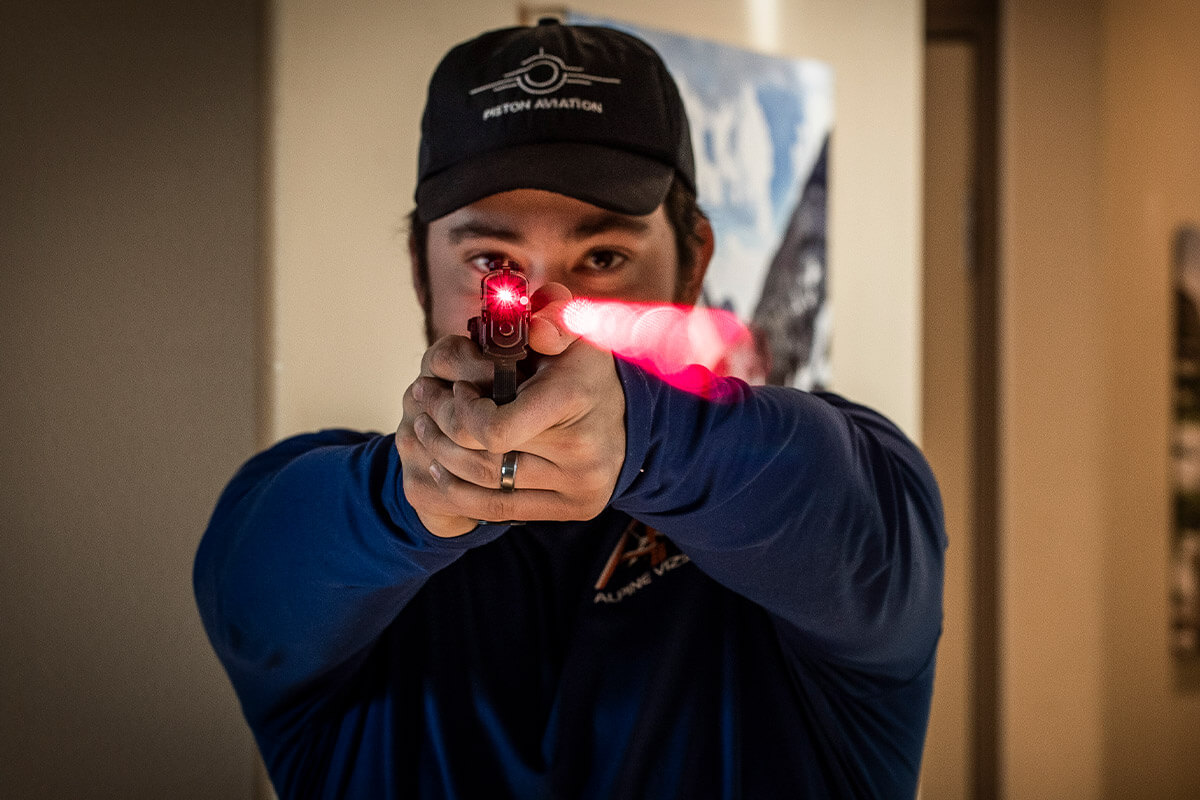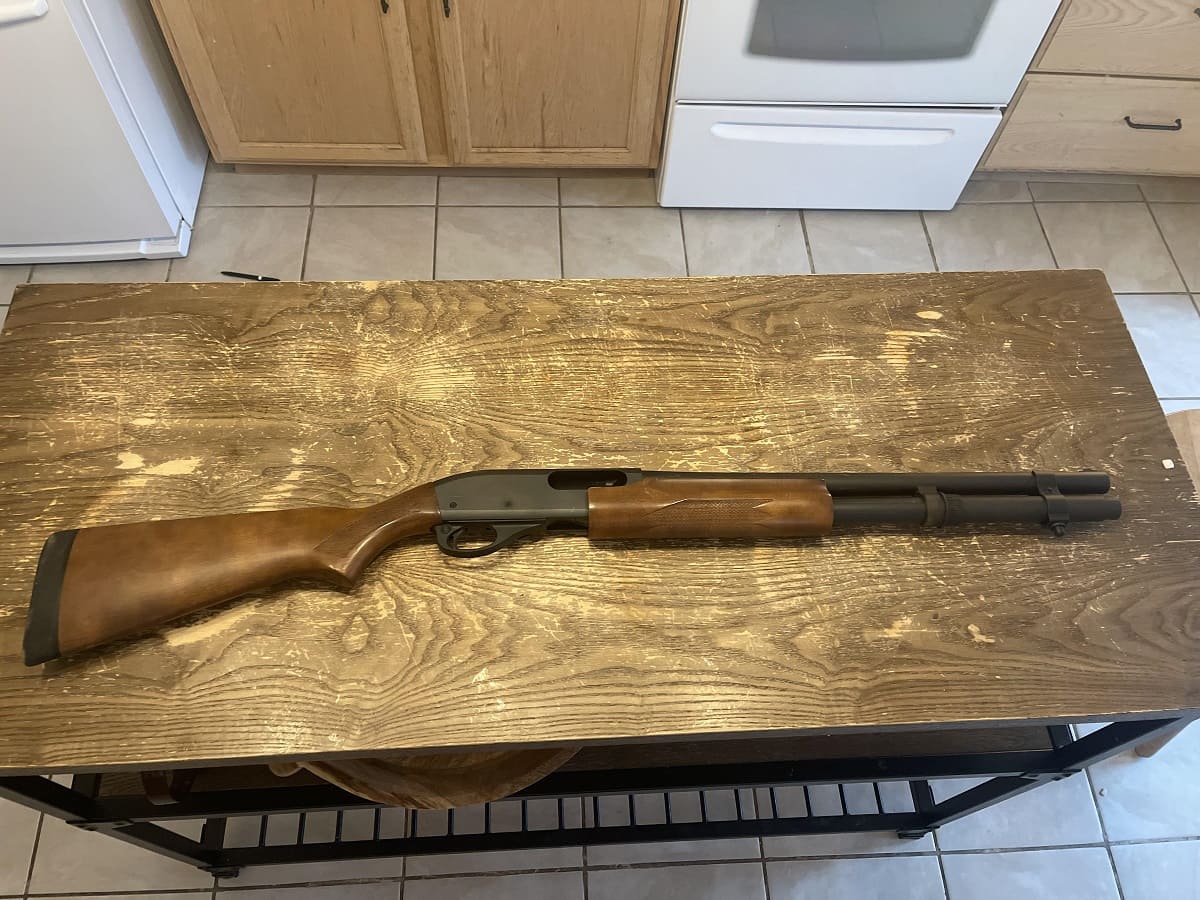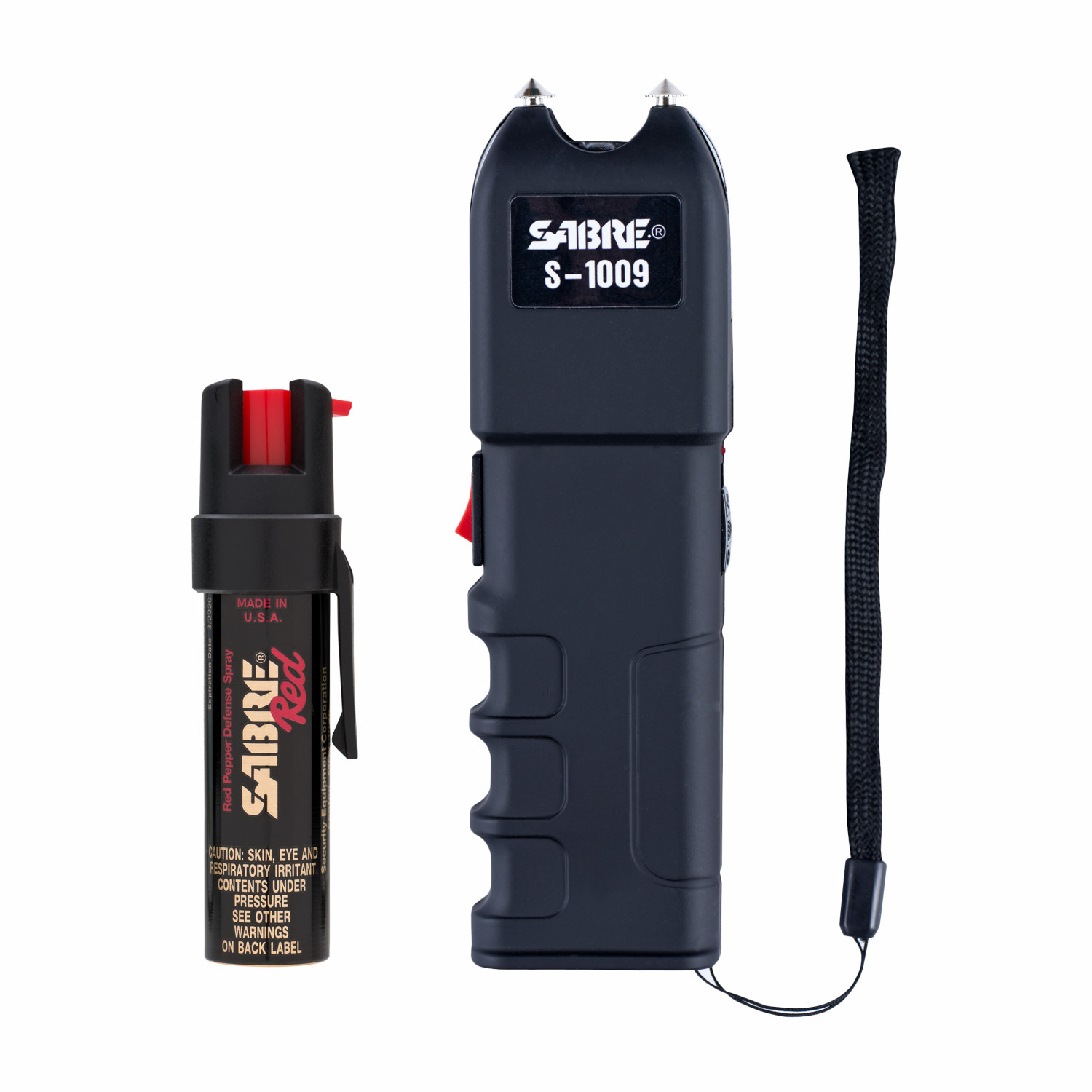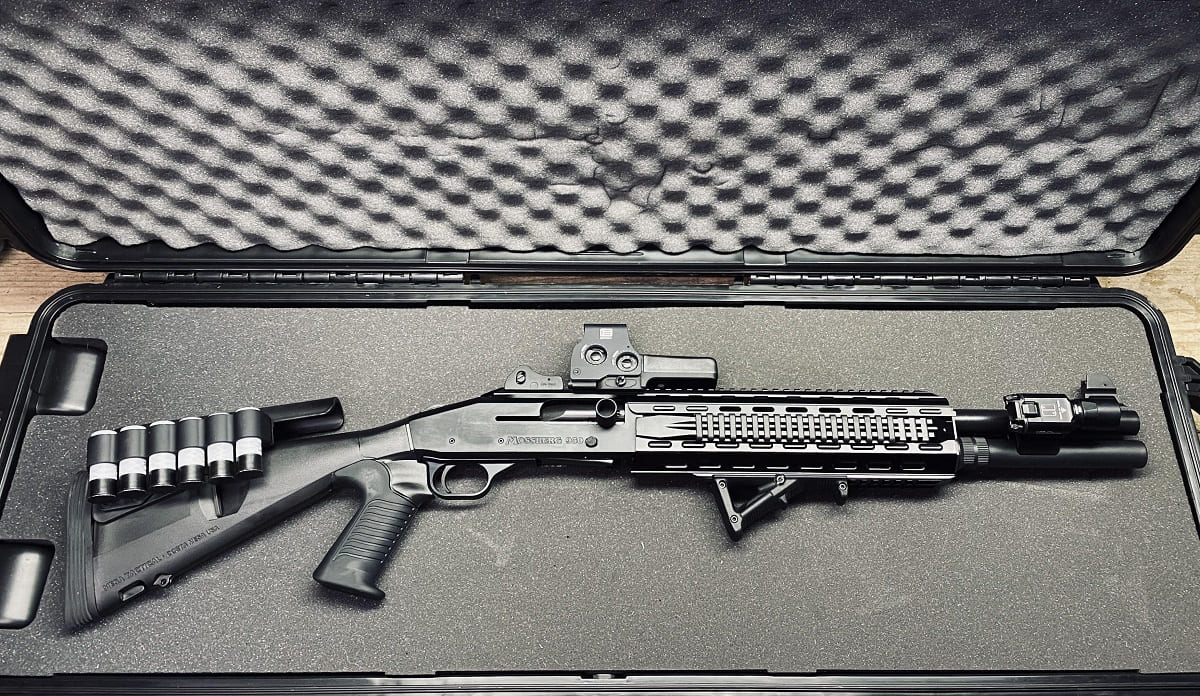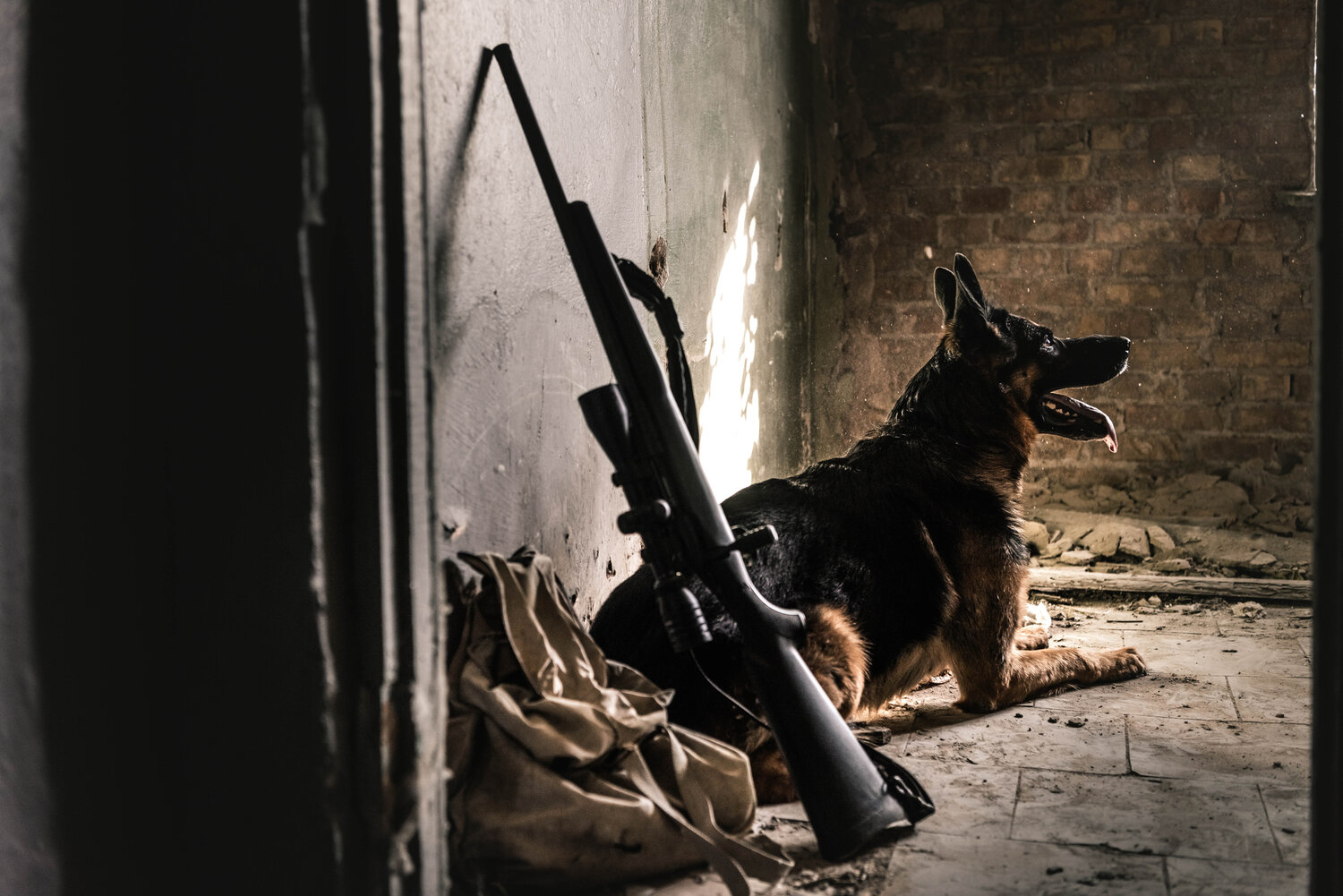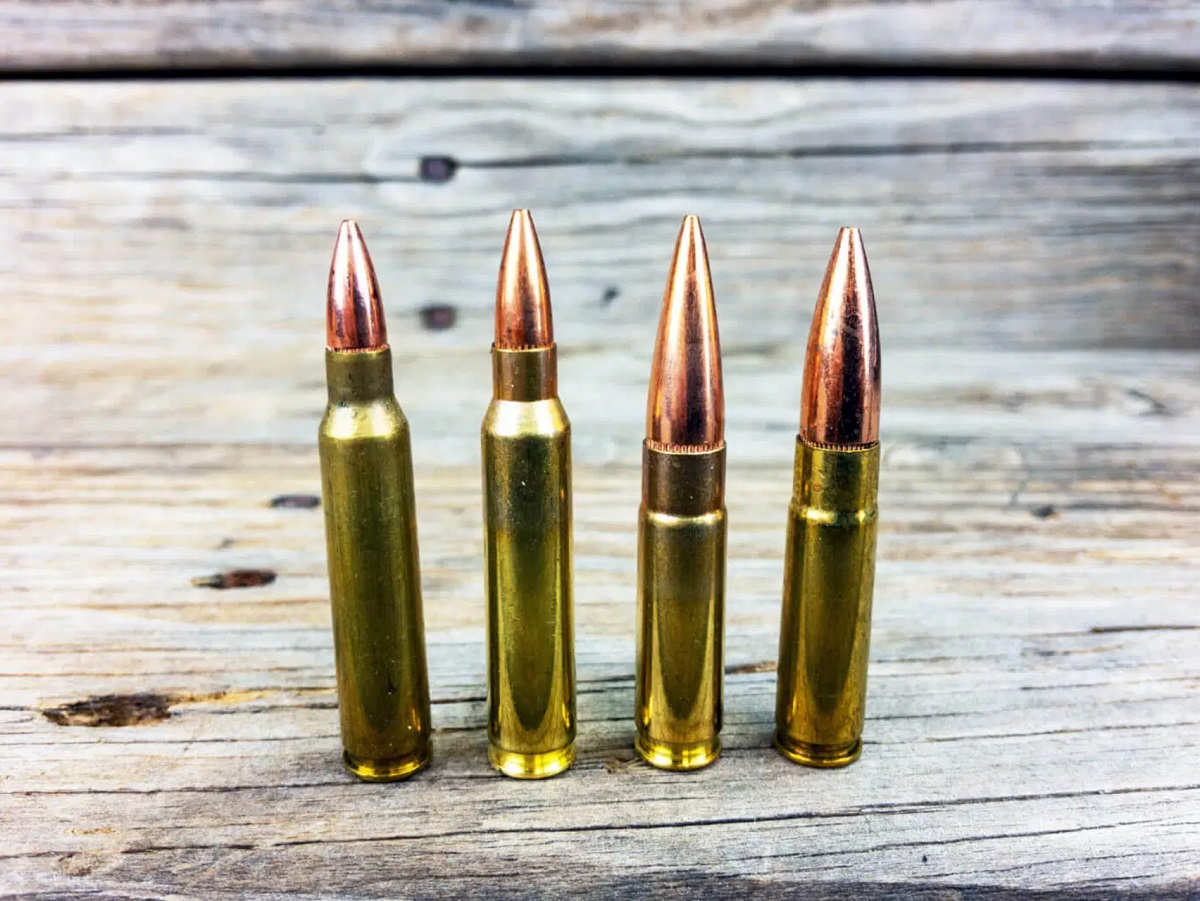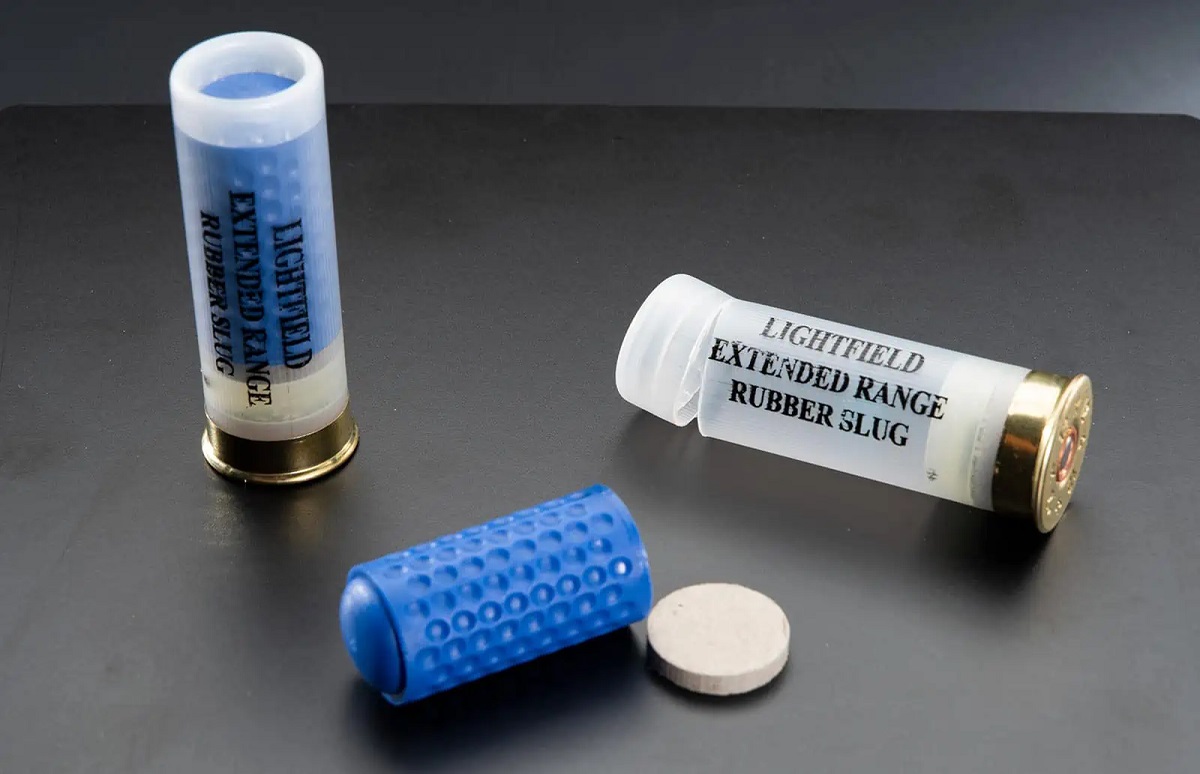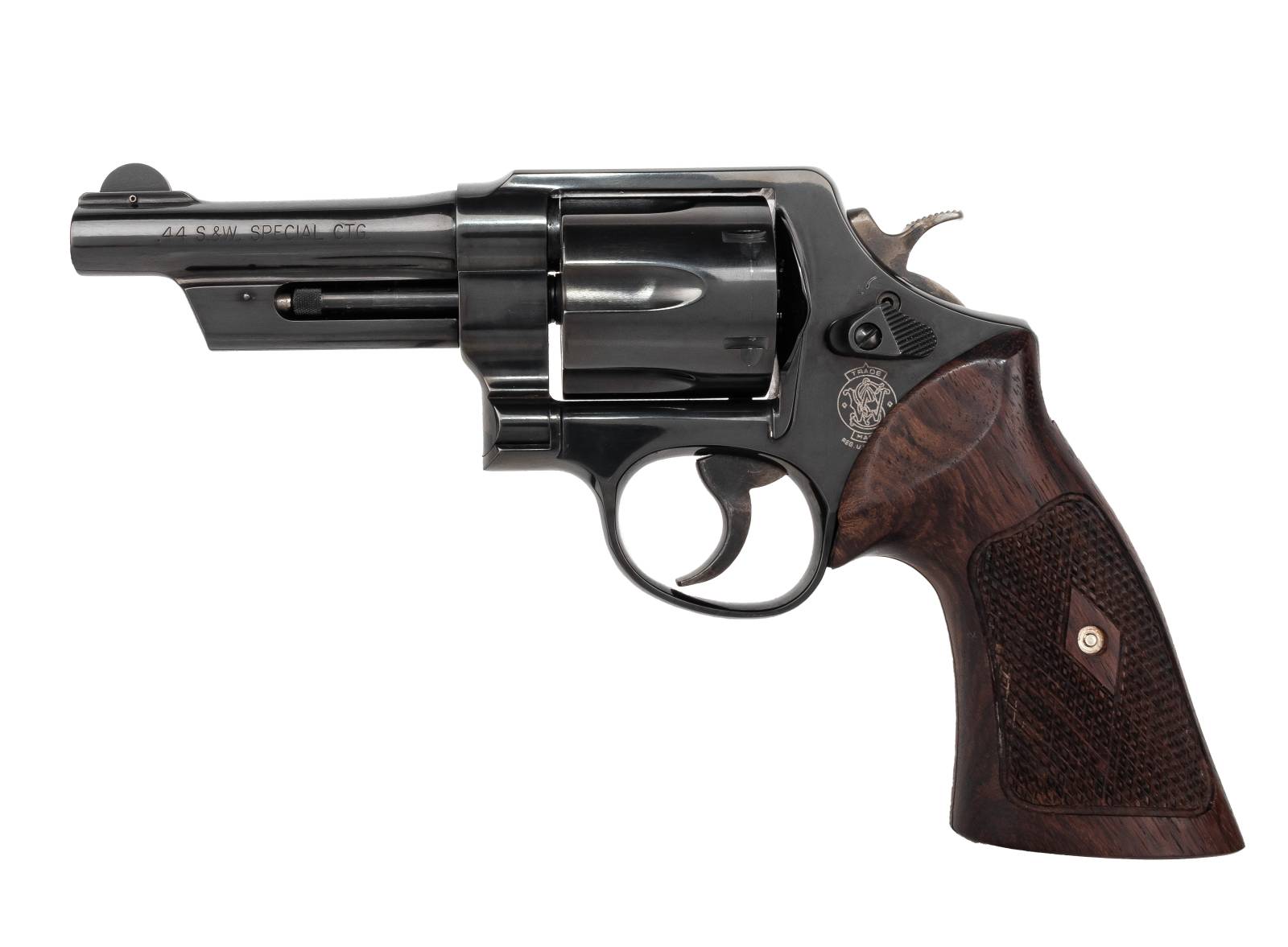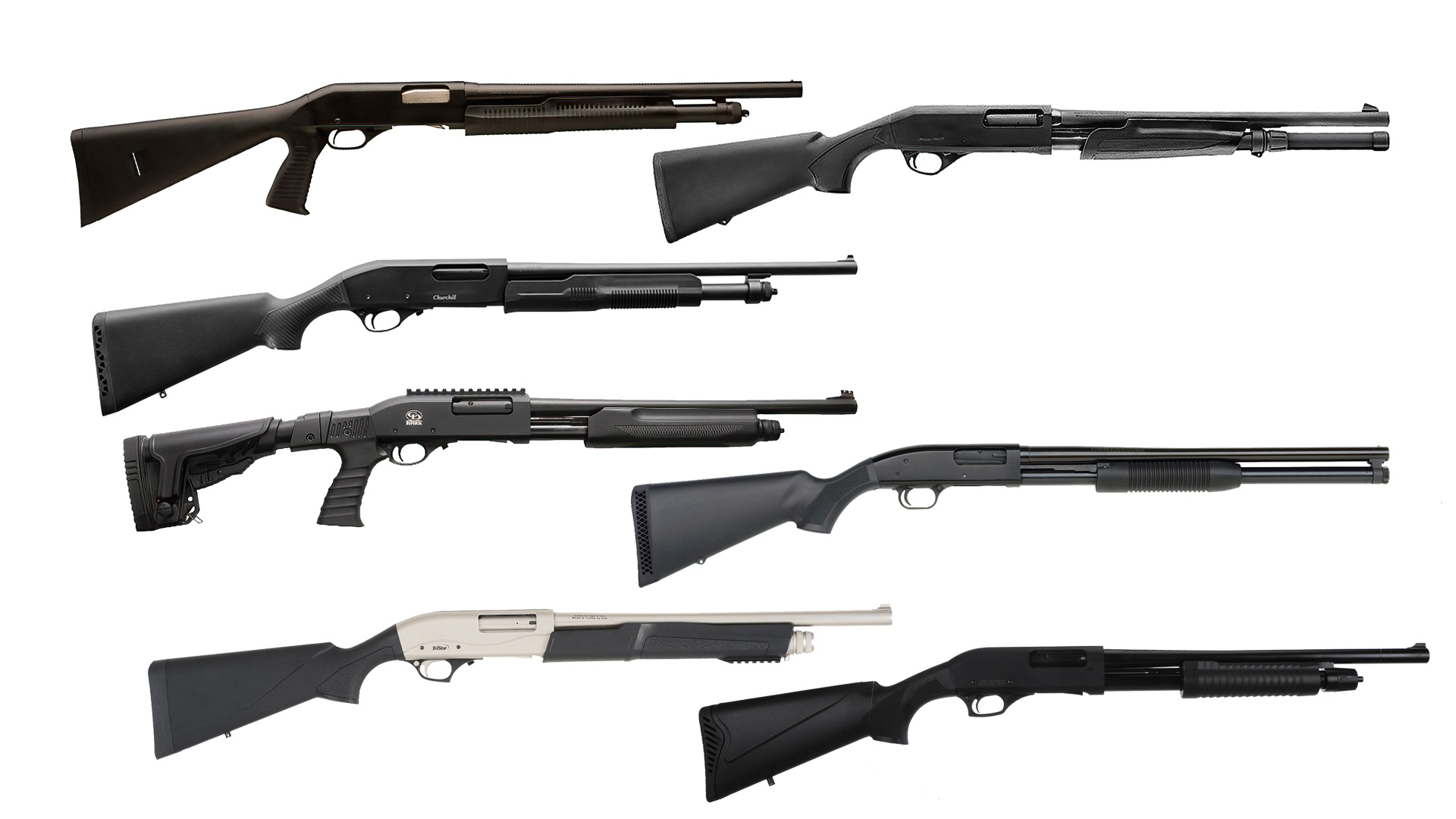Home>Home Security and Surveillance>Which Caliber Is Best For Home Defense
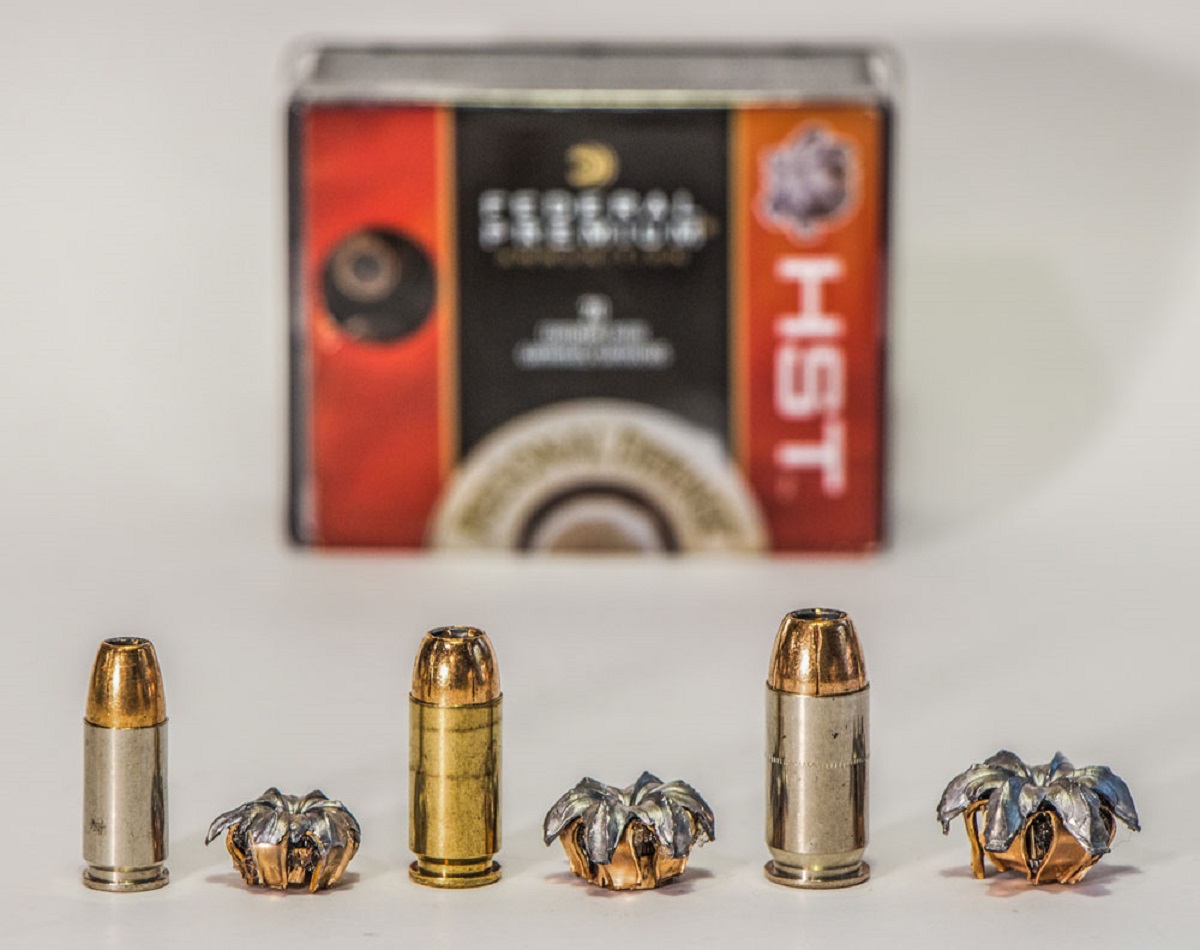

Home Security and Surveillance
Which Caliber Is Best For Home Defense
Modified: March 7, 2024
Discover the best caliber for home defense in our comprehensive guide. Explore the benefits of various options and ensure optimal #home-security-and-surveillance.
(Many of the links in this article redirect to a specific reviewed product. Your purchase of these products through affiliate links helps to generate commission for Storables.com, at no extra cost. Learn more)
Introduction
When it comes to ensuring the safety and security of your home and loved ones, having a reliable and effective home defense system is essential. One crucial aspect of that system is selecting the right caliber for your home defense firearm. The caliber refers to the diameter of the bullet used in the firearm, and it plays a significant role in determining the stopping power and effectiveness of the weapon.
Choosing the best caliber for home defense can be a daunting task, as there are numerous options available on the market. Factors such as penetration, recoil, ammunition availability, and personal preference should all be taken into account when making this decision. In this article, we will explore some of the most commonly recommended calibers for home defense and the advantages they bring to the table.
Key Takeaways:
- Choose the 9mm Luger for a versatile and practical home defense handgun, offering a balance of stopping power, manageable recoil, and high ammunition capacity.
- Consider the 12 gauge shotgun for formidable stopping power and wide ammunition options, providing effective home defense in high-stress situations.
Factors to Consider for Home Defense Caliber
Before diving into specific calibers, it’s important to understand the key factors that should be considered when selecting a home defense caliber:
- Stopping Power: One of the primary considerations when choosing a caliber is its stopping power. In a high-stress situation, you need a caliber that can quickly incapacitate an intruder and prevent further harm. Look for a caliber with sufficient energy transfer and the ability to deliver effective stopping power.
- Penetration: While stopping power is essential, it’s also crucial to consider penetration. You want a caliber that can penetrate deeply enough to reach vital organs but not so much that it poses a risk to bystanders or damages property. Strike the right balance between penetration and over-penetration.
- Recoil: Recoil is the backward force produced when a firearm is discharged. It affects your ability to quickly and accurately fire follow-up shots. Consider the recoil of different calibers and choose one that you can comfortably handle, ensuring quick target reacquisition and minimal muzzle rise.
- Ammunition Availability: It’s crucial to choose a caliber for which ammunition is readily available. In a home defense scenario, you want to ensure that you have easy access to reliable and quality ammunition. Opt for a caliber that is commonly found at local stores or easily obtained online.
- Firearm Size and Capacity: The size and capacity of your firearm should also be taken into account. Larger calibers often require larger firearms, which can be more challenging to conceal or maneuver in tight spaces. Consider the balance between caliber size and the practicality of using the firearm for home defense purposes.
- Personal Preference: Lastly, personal preference also plays a role in selecting the right caliber for home defense. Take into account factors such as your shooting experience, comfort with a particular caliber, and overall confidence in handling that specific firearm.
By carefully considering these factors, you can make a well-informed decision and choose a caliber that best suits your home defense needs. Now, let’s explore some of the popular calibers available for home defense.
9mm Luger
The 9mm Luger, also known as 9mm Parabellum or 9x19mm, is one of the most widely used calibers in the world and a popular choice for home defense. It offers a balance of stopping power, manageable recoil, and high ammunition capacity.
One of the key advantages of the 9mm is its versatility. It is available in a wide range of bullet weights, ranging from light and fast projectiles to heavier options for deeper penetration. This versatility allows the shooter to select the appropriate ammunition based on their specific needs and preferences.
Furthermore, the 9mm offers relatively low recoil compared to larger calibers, making it easier to control and fire accurately. This is particularly beneficial for inexperienced shooters or those who may struggle with recoil management. The manageability of the 9mm allows for quicker follow-up shots and increased shot placement accuracy.
In terms of ammunition availability, the 9mm is highly accessible. It is the standard caliber for many law enforcement agencies and military units, meaning it can be easily found at most gun stores and online retailers. The widespread availability of 9mm ammunition ensures that you can stock up on reliable self-defense rounds without much difficulty.
While some argue that larger calibers offer superior stopping power, the advancements in modern 9mm ammunition have made it highly effective in neutralizing threats. With properly designed hollow-point ammunition, the 9mm can deliver devastating and reliable terminal performance, ensuring that the threat is stopped effectively.
One potential concern with the 9mm is its penetration capabilities. Due to its relatively smaller diameter compared to larger calibers, it may not penetrate as deeply as some other options. However, this can be mitigated by choosing appropriate self-defense rounds that offer a balance between expansion and penetration.
Overall, the 9mm Luger is an excellent choice for home defense due to its effectiveness, manageable recoil, high ammunition capacity, and accessibility. It offers a practical and reliable solution for protecting yourself and your loved ones within the confines of your home.
.45 ACP
The .45 ACP (Automatic Colt Pistol) is a popular caliber known for its stopping power and legendary reputation. Developed by John Browning in the early 20th century, it has been a trusted choice for self-defense and military applications for over a century.
One of the significant advantages of the .45 ACP is its stopping power. The larger bullet diameter and increased energy transfer make it highly effective in quickly incapacitating a threat. The .45 ACP has a reputation for creating larger wound channels and deeper penetration, which can deter attackers and prevent them from continuing their assault.
Despite its considerable stopping power, the .45 ACP does produce notable recoil. This recoil can be a challenge for some shooters, especially those with less experience or smaller frames. However, with proper training and practice, managing the recoil of a .45 ACP firearm can be mastered, allowing for accurate and impactful shots.
Ammunition availability is generally good for .45 ACP. It is a widely used caliber, and you can often find a variety of ammunition options, including self-defense rounds, at most gun stores and online retailers. However, due to its popularity, the cost of .45 ACP ammunition can be slightly higher compared to other calibers.
One consideration with the .45 ACP is its lower ammunition capacity. Most .45 ACP firearms have a lower round count compared to smaller calibers like the 9mm. This limitation may require more frequent reloading, which can be a concern in high-stress situations. However, the trade-off is the increased stopping power and the confidence that each shot fired packs a significant punch.
Overall, the .45 ACP is a robust and reliable caliber for home defense purposes. It offers excellent stopping power and is trusted by many shooters around the world. If you can handle the recoil and prioritize the advantages of a larger bullet diameter, the .45 ACP is worth considering for your home defense firearm.
.40 S&W
The .40 S&W (Smith & Wesson) is a popular caliber that was developed in the late 1980s as a compromise between the 9mm and .45 ACP. It offers a balance between magazine capacity, recoil, and stopping power, making it a suitable choice for home defense.
One of the primary advantages of the .40 S&W is its stopping power. While it may not match the raw power of the .45 ACP, the .40 S&W still delivers a significant amount of energy upon impact, increasing the likelihood of quickly neutralizing a threat. The larger bullet diameter compared to the 9mm also helps create wider wound channels, promoting effective stopping power.
Recoil can be a consideration when choosing the .40 S&W. It generates somewhat more recoil compared to the 9mm, but less than the .45 ACP. This means that there can be a learning curve for shooters who are not accustomed to handling the additional recoil. However, with proper grip and technique, the recoil of a .40 S&W firearm can be managed effectively.
Ammunition availability for the .40 S&W is generally good. While it may not be as widely available as the 9mm, you can still find a variety of self-defense ammunition options at most gun stores and online retailers.
The magazine capacity of firearms chambered in .40 S&W is typically lower compared to 9mm. This is due to the larger diameter of the cartridge, which requires more space in the magazine. However, modern advancements in firearm design have resulted in compact and high-capacity .40 S&W pistols that offer a good balance between firepower and magazine capacity.
Overall, the .40 S&W provides a middle ground between the 9mm and .45 ACP, offering a balance of stopping power and controllable recoil. If you prefer a caliber with a larger bullet diameter and more energy transfer than the 9mm, but with less recoil than the .45 ACP, the .40 S&W may be the right choice for your home defense needs.
When choosing a caliber for home defense, consider factors like over-penetration, recoil control, and ammunition availability. 9mm is a popular choice due to its effectiveness and manageable recoil.
.380 ACP
The .380 ACP (Automatic Colt Pistol), also known as the 9mm Short, is a compact and popular caliber for concealed carry and home defense. Despite its smaller size, the .380 ACP offers notable advantages and can be an effective choice for personal protection.
The main advantage of the .380 ACP is its compactness. The smaller cartridge size allows for firearms to be designed in a more compact and lightweight manner, making them easier to carry and conceal. This makes the .380 ACP a popular choice for individuals who prioritize concealment and comfort.
While the .380 ACP has a smaller bullet diameter and less energy transfer compared to larger calibers, it still has sufficient stopping power for self-defense purposes. When paired with modern self-defense ammunition, such as hollow-point rounds, the .380 ACP can deliver adequate terminal performance by expanding upon impact and creating larger wound channels.
Another advantage of the .380 ACP is its lower recoil. The reduced recoil allows for increased control and faster follow-up shots, especially for those with less shooting experience or physical strength. The ease of shooting and manageable recoil make the .380 ACP an ideal choice for shooters who want a balance between effectiveness and controllability.
When it comes to ammunition availability, the .380 ACP is widely accessible. It is a popular caliber for both concealed carry and home defense, meaning you can find a variety of ammunition options at most gun stores and online retailers.
It’s important to note that the .380 ACP typically has lower magazine capacities compared to larger calibers. This is due to the compact size of the cartridge and the resulting limitations on magazine design. However, various manufacturers offer higher-capacity magazines for certain .380 ACP firearms, providing increased round capacity.
In summary, the .380 ACP offers a compact, lightweight, and controllable option for home defense. While it may not have the same stopping power as larger calibers, it provides a balance of effectiveness and concealability. For individuals who prioritize ease of carry and manageable recoil, the .380 ACP is worth considering for personal protection.
.357 Magnum
The .357 Magnum is a powerful and versatile caliber that is commonly used for self-defense, hunting, and sports shooting. It offers impressive stopping power, excellent penetration, and a wide range of ammunition options.
One of the main advantages of the .357 Magnum is its outstanding stopping power. The larger bullet diameter and higher muzzle velocity compared to other calibers make it a formidable choice for neutralizing threats. The .357 Magnum is known for its ability to deliver terminal performance by efficiently transferring energy to the target.
In addition to its stopping power, the .357 Magnum offers excellent penetration. It can effectively penetrate barriers such as clothing, walls, and glass while retaining enough energy to still incapacitate the target. This penetration capability is crucial in scenarios where an attacker may be hiding behind cover.
When it comes to ammunition options, the .357 Magnum provides a wide variety of choices. From lighter, faster rounds suitable for self-defense to heavier, slower projectiles for hunting or bear defense, there is a range of loads available to suit different purposes. This versatility allows shooters to tailor their ammunition selection based on specific needs and preferences.
It’s important to note that the .357 Magnum generates significant recoil due to its powerful nature. This recoil can be challenging for some shooters, particularly those with limited experience. However, with proper technique and training, the recoil of a .357 Magnum firearm can be managed effectively.
Ammunition availability for the .357 Magnum is generally good. It is a popular caliber with a long-standing reputation, which means that you can find a variety of options, including both self-defense and target ammunition, at most gun stores and online retailers.
Overall, the .357 Magnum is a powerful and versatile caliber that offers considerable stopping power and exceptional penetration. It serves as an excellent choice for those who prioritize a combination of power and penetration performance. If you can handle the recoil and desire a caliber capable of delivering significant energy transfer, the .357 Magnum is a standout option for home defense.
Shotgun Calibers for Home Defense
Shotguns are well-regarded for their effectiveness in home defense scenarios due to their formidable stopping power and wide range of ammunition options. When it comes to shotgun calibers for home defense, two popular choices are 12 gauge and 20 gauge.
The 12 gauge shotgun is the most common and widely available shotgun caliber. It offers substantial stopping power, making it highly effective in neutralizing threats. The larger diameter of 12 gauge shells allows for a greater spread of shot, increasing the chances of hitting the target. Additionally, 12 gauge shotguns can chamber a variety of ammunition types, including buckshot, birdshot, and slugs, providing versatility for different scenarios.
The 20 gauge shotgun is slightly smaller in size compared to the 12 gauge and is often favored by individuals who prefer less recoil and a lighter firearm. Although it may have slightly less stopping power, the difference is negligible in a home defense situation. The 20 gauge shotgun still provides formidable firepower and a wide selection of ammunition options, making it a reliable choice for protecting your home.
Both the 12 gauge and 20 gauge shotguns offer a significant advantage in terms of ammunition capacity. With shotgun shells typically holding multiple projectiles, such as buckshot or birdshot, you have the opportunity to fire multiple rounds with each pull of the trigger. This can be particularly advantageous in high-stress situations where quick follow-up shots may be necessary.
Furthermore, the sound of a shotgun being chambered can act as a powerful deterrent on its own. The distinct noise can intimidate potential intruders and potentially dissuade them from further confrontation.
When choosing a shotgun for home defense, it is essential to consider other factors such as barrel length, overall size, and ergonomics. Shorter barrels, typically around 18 to 20 inches, allow for better maneuverability in confined spaces, such as hallways or tight corners. Additionally, selecting a shotgun with features like a pistol grip or adjustable stock can enhance ease of use and comfort.
Ultimately, the choice between 12 gauge and 20 gauge shotgun calibers for home defense depends on personal preference, shooter capability, and individual needs. Both calibers provide substantial stopping power, wide ammunition options, and excellent capacity for handling a potential threat. Proper training, practice, and familiarization with your chosen shotgun are vital for effective home defense.
Rifle Calibers for Home Defense
While shotguns are commonly associated with home defense, rifles can also be a formidable choice for protecting your home. Rifles provide increased accuracy, longer effective range, and higher magazine capacities compared to shotguns. Here are two popular rifle calibers for home defense: 5.56mm/.223 Remington and 7.62mm/.308 Winchester.
The 5.56mm/.223 Remington caliber is commonly used in rifles such as the AR-15 platform. It offers several advantages for home defense. First, the 5.56mm/.223 Remington has low recoil, allowing for accurate and quick follow-up shots. This is particularly beneficial in high-stress situations where shot placement is critical. Second, the smaller size of the round allows for higher magazine capacities, meaning you can have more rounds readily available without frequent reloading. Additionally, 5.56mm/.223 Remington ammunition is widely available and versatile, with a variety of defensive loads designed to offer effective stopping power while minimizing over-penetration risks.
Another notable caliber for home defense is the 7.62mm/.308 Winchester. This larger caliber is often found in semi-automatic rifles such as the AR-10 platform. The 7.62mm/.308 Winchester offers excellent stopping power and penetration capability, making it effective in neutralizing threats. With its larger projectile size, the caliber can create larger wound channels and deliver significant energy transfer upon impact. However, it’s important to consider the increased recoil associated with the 7.62mm/.308 Winchester, which may require more practice and training to manage effectively.
Choosing between the 5.56mm/.223 Remington and 7.62mm/.308 Winchester depends on various factors, including personal preference, shooter capability, and the layout of your home. The 5.56mm/.223 Remington is favored for its lighter recoil, higher magazine capacity, and the ability to engage threats at shorter distances typically encountered in home defense scenarios. On the other hand, the 7.62mm/.308 Winchester offers superior stopping power and greater effective range, which may be advantageous in specific situations or for individuals who prioritize maximum firepower.
Furthermore, when selecting a rifle for home defense, consider factors such as size, maneuverability, and suitability for your home environment. Compact and lightweight rifles are often preferred for ease of handling and maneuvering around corners and hallways. Additionally, features like adjustable stocks, accessory rail systems, and red dot sights can enhance usability and adaptability to different shooting conditions and scenarios.
Regardless of the rifle caliber chosen, proper training and familiarization with your chosen firearm are essential. Regular practice, understanding the ballistics of your ammunition, and ensuring safe firearm handling practices are fundamental for effective and responsible home defense.
Read more: Which Rifle Is Best For Home Defense
Conclusion
Choosing the right caliber for home defense is a crucial decision that requires careful consideration. There are several factors to weigh when selecting a caliber, including stopping power, penetration, recoil, ammunition availability, firearm size and capacity, and personal preference.
For handguns, options like the 9mm Luger, .45 ACP, .40 S&W, and .380 ACP offer varying levels of stopping power, recoil management, and ammunition availability. The 9mm Luger stands out as a versatile and practical choice, offering a balance of stopping power, manageable recoil, and high ammunition capacity.
Shotguns provide formidable firepower for home defense, with the 12 gauge and 20 gauge being the go-to calibers. The 12 gauge shotgun offers significant stopping power, a wide range of ammunition options, and higher magazine capacities. The 20 gauge, while slightly smaller, is still an effective choice with reduced recoil.
When considering rifles for home defense, the 5.56mm/.223 Remington and 7.62mm/.308 Winchester are popular options. The 5.56mm/.223 Remington excels in terms of low recoil, high magazine capacity, and versatility. The 7.62mm/.308 Winchester offers greater stopping power and penetrating capabilities, making it suitable for specific situations and individuals prioritizing maximum firepower.
Ultimately, the best caliber for home defense depends on your specific needs, preferences, and comfort level with the chosen firearm. It is crucial to invest in proper training, practice regularly, and become familiar with your selected firearm to ensure effective and responsible use.
Remember, the goal of home defense is to protect yourself and your loved ones. Consider factors like reliability, ease of use, and your ability to engage threats effectively. Select a caliber that you can confidently handle and that provides the characteristics necessary to neutralize potential threats in a home defense scenario.
Consult with local experts, firearm professionals, and experienced shooters to gather additional insights and make an informed decision based on your unique circumstances. By carefully considering these factors, you can choose the ideal caliber and develop a comprehensive home defense strategy to keep your loved ones safe and secure.
Frequently Asked Questions about Which Caliber Is Best For Home Defense
Was this page helpful?
At Storables.com, we guarantee accurate and reliable information. Our content, validated by Expert Board Contributors, is crafted following stringent Editorial Policies. We're committed to providing you with well-researched, expert-backed insights for all your informational needs.
